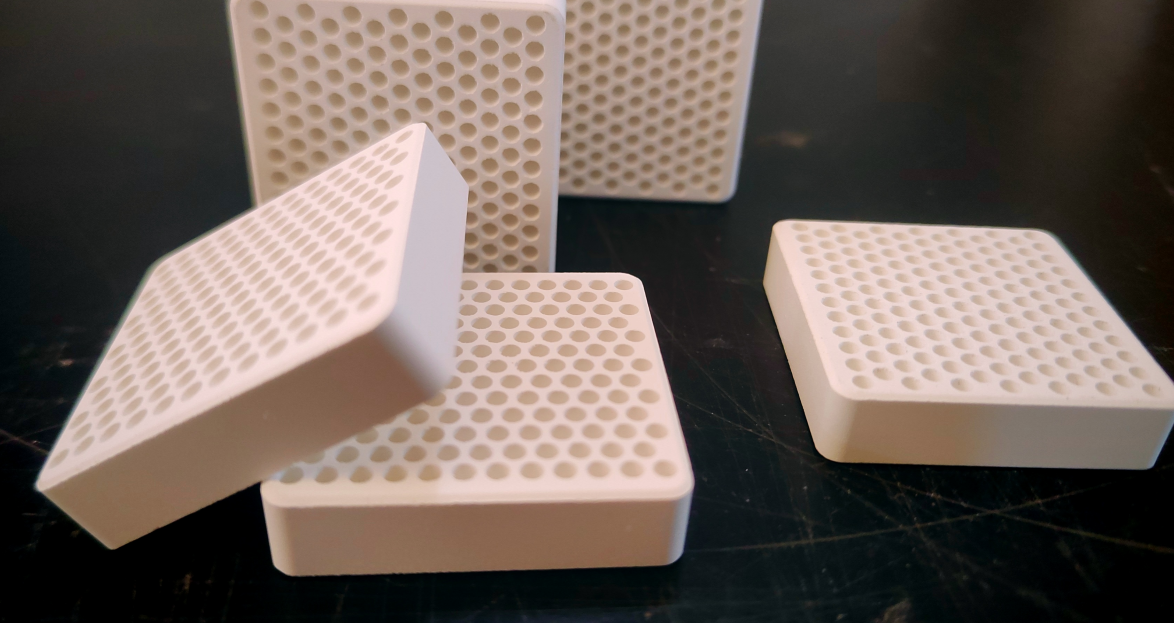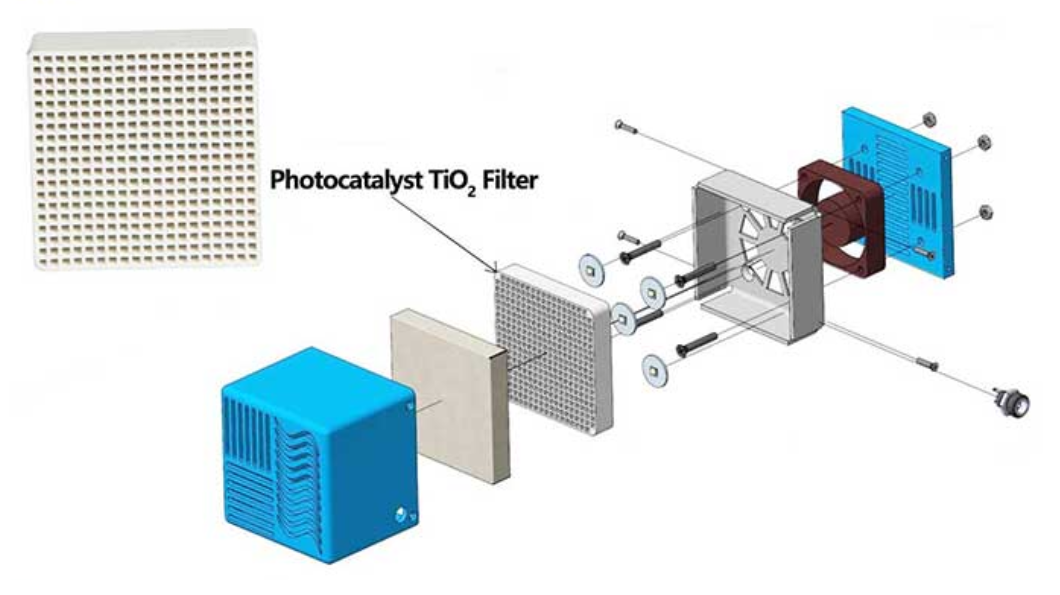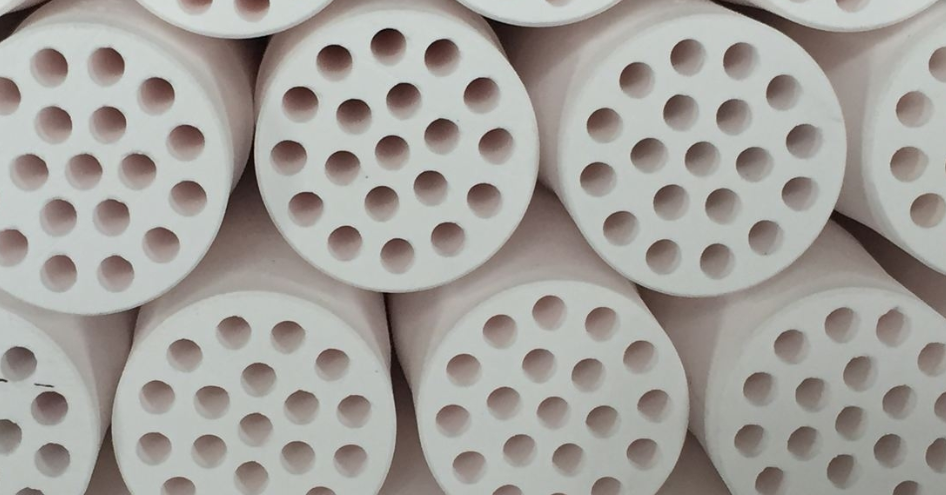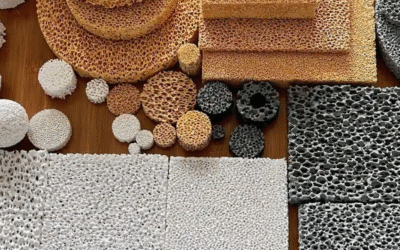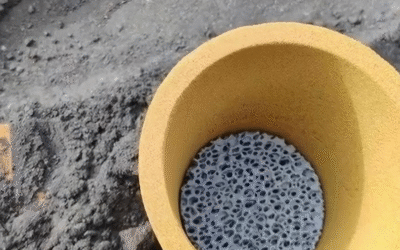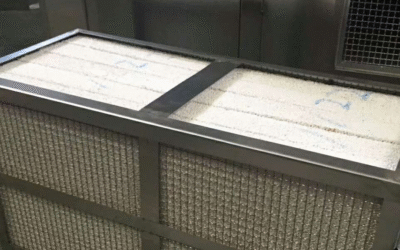industrial water filter prices in Nigeria vary based on system type, capacity, technology, and site needs. Small-scale and entry-level systems start at ₦12,000 to ₦30,000. These include basic filter housings and drip filters. I recommend them for agriculture and light use.
Semi-commercial nanofilter units work well for homes and small businesses. They cost more than entry-level options. But they filter water better and handle larger volumes.
Reverse Osmosis (RO) and Component Pricing
Industrial Reverse Osmosis (RO) systems: Prices range from ₦700,000 to ₦4,500,000. The cost depends on production volume, technology, and automation features. For example, a 1,000-liter-per-hour RO plant costs about ₦2,000,000.
RO System Components:
- Pre-filtration cylinders: ₦250,000 each
- UF membranes: about ₦200,000
- Surface pumps: around ₦160,000
- GP storage tanks: about ₦80,000 each
- Cartridge filters: ₦12,000 to ₦15,000
High-Capacity and Large-Scale Systems
Large factories or housing estates need bulk water processing. Large-scale water treatment plants cost between ₦4,000,000 to ₦10,000,000. These systems combine multiple filtration stages. They include RO membranes, large storage, and automation. This makes them reliable and efficient.
International Price Comparison
water filtration systems for 10,000 liters per day start at about $3,800 globally. This covers basic sand and carbon filters. Advanced RO and EDI setups can reach $18,000. RO units processing 500 to 3,000 liters per hour cost between $389 to $2,600. Prices vary by manufacturer and features.
Market Overview and Major Suppliers
Nigeria’s market has local producers and international brands. Vikas Pump and Ozed Ventures Limited are major suppliers. They provide many industrial filtration solutions. Options range from simple sand or carbon filters to advanced membrane systems with automated cleaning. I suggest buying locally. Local suppliers offer competitive prices and product variety. They can match your specific industry needs.
Core Price List for Industrial Water Filters in Nigeria
I want to share a clear breakdown of industrial water filter prices in Nigeria with you. This includes key parts and common system options. I’ve listed current market rates here. You can use this to compare prices easily.
Key Industrial Water Filter Components and Prices
- Micro Filters (20 inches): ₦25,000 each
- Drip Irrigation Industrial Filter: ₦28,000 (now discounted from ₦30,000)
- Cartridge Filter (Basic): ₦12,000 – ₦15,000 (I often see this used in entry-level setups and maintenance work)
- UF Membrane (Ultrafiltration, Industrial Use): ₦200,000 per unit
- Surface Pump (1.5HP, Larger Installations): ₦160,000
- FP Cylinder (Chemical Dosing): ₦250,000 per unit (most systems need two cylinders)
- Chemical Dosing Solution (for FP Cylinders): ₦400,000
- GP Tanks (Water Storage): ₦80,000 per unit (standard setups often need two tanks)
Industrial Reverse Osmosis (RO) System Prices
- RO System (1,000L/hr Capacity): ₦2,000,000 (this is just the system component)
- Complete RO Commercial Plant (Installed, All Accessories): ₦4,000,000
- Reverse Osmosis Machines (By Capacity & Features): ₦700,000 – ₦4,500,000 (price varies based on flow rate, automation, and technology)
Large-Scale and International System Price Range
Industrial Water filter systems (10,000L/day): $3,800 (basic sand/carbon setup) – $18,000 (advanced RO/EDI system)
Industrial RO Systems (By Flow Rate): $389 – $3,850 (this is the international market price. It depends on technology and features)
Water Filter Systems (Home/Small Industrial): ₦2,000 – ₦100,000 (from basic to semi-commercial models)
Prices can change based on your supplier, setup, and customization needs. I recommend you use this list to estimate costs for your water filter project. It works well for equipment upgrades too.
Factors Affecting Industrial Water Filter Prices
Several major factors influence the price of Industrial water filters in Nigeria. These factors shape your budget and system choice.
Capacity and Flow Rate Impact
Water filter systems with larger processing capacity cost more. Systems handling 10,000 liters per day start at $3,800 for basic sand/carbon filters. Advanced RO/EDI setups go up to $18,000. Reverse Osmosis units for 250 liters per hour cost around ₦559-580. The 1,000L/hour models cost about ₦2,000,000.
I recommend considering how capacity affects your investment. For example, the 500LPH industrial RO water treatment system ranges from ₦1,100-2,200. Your investment can double as capacity increases.
Filtration Technology Differentiation
I’ve found that filtration method is a key price factor. Simple sand and carbon filtration for 10,000L/day costs $3,800-$5,000. Ultrafiltration models like the SWK254-80000L/H cost about ₦461-469. Reverse Osmosis (RO) systems cost more. The GY500-12N4040-A02 500LPH RO filter costs ₦389-399. The 3,000L/H RO purification machines cost ₦2,600. RO and EDI systems for high capacities can reach $18,000 in global markets. In Lagos, RO machine prices range from ₦700,000 to ₦4,500,000. Technology and capacity determine the final price.
Material and Construction Quality
Based on my experience, quality materials justify higher prices. industrial filtration systems made with stainless steel and auto-cleaning features cost more.
SWK254-80000L/H tankless stainless units cost ₦461-469. Steel tank and integrated pump setups range from ₦1,590-1,610. High-end purification systems with full stainless steel, auto-clean, and PLC controls can reach ₦1,200-1,399. A complete Lagos installation with strong materials and automation totaled around ₦4,000,000.
Geographic and Supplier Variations
industrial filter supplier and origin affect prices. Chinese brands like Shandong Haiyun Er have deionized systems at ₦680-740. Guangzhou Chunke Environmental 3,000L/H systems cost ₦2,600. I suggest checking local Nigerian suppliers such as Vikas Pumps. They offer adjusted prices that are often more competitive for industry use. Imported systems show reorder rates of 15-38% among global buyers. This reflects their perceived price and value.
Installation and Component Package Costs
The final system price includes all essential components and installation labor. Here’s a real example from Lagos: A complete 1,000L/h water treatment system included these components:
- FP cylinders at ₦250,000 each
- A 1.5HP surface pump for ₦160,000
- Cartridge filters at ₦12,000–₦15,000
- UF membrane at ₦200,000
- GP tanks at ₦80,000 per unit
- The core four-membrane RO system at ₦2,000,000
- Automatic electrical controls and membrane housing
The total package cost was around ₦4,000,000. Entry-level 500L/H industrial machines using sand and carbon filters cost ₦500-600 per unit in bulk orders.
System Type Price Categories
I like entry-level options for small-scale needs. Semi-commercial nano filters like the WECO NF-0250 (250 gallons per day) work well for smaller operations. Industrial self-cleaning models are priced between ₦800-1,399. High-flow and auto-cleaning industrial filters cost ₦1,200-1,399. Large-scale complete industrial purification systems use RO plus sand and carbon filters. These can cost between ₦2,500-3,850.
Leading Suppliers and Market Information
I recommend you pay close attention to key suppliers, pricing, and market trends in Nigeria’s industrial water filter market. Here’s what I found about the main players and their prices.
Main Industrial Water Filter Suppliers in Nigeria
Vikas Pump
- Basic industrial water filters start from ₦150,000.
- Advanced filtration systems reach up to ₦1,200,000. Capacity and filtration technology affect the price.
- Discounts available for bulk orders. Shipping within Nigeria is included in most purchases.
Aqua Filtration Nigeria
They use project-based pricing. Standard industrial filtration systems for small and medium factories range from ₦300,000 to ₦2,500,000. The price depends on filtration type, flow rate, and customization. Emergency and mobile units start at ₦450,000.
Pure Aqua
- Multimedia and activated carbon systems start at ₦200,000 for standard units.
- Customized systems for industrial clients cost between ₦500,000 and ₦3,000,000.
Ozed Ventures Limited: They offer many industrial filtration systems. Price range from ₦180,000 to ₦3,500,000. filtration system technology and scale determine the cost.
Other Notable Suppliers
- Fairtex Nigeria Ltd: They focus on oil and gas filtration. Prices range from ₦400,000 to ₦2,800,000.
- Seindeo Limited: They handle custom filtration projects. Standard installations cost from ₦350,000 to ₦4,000,000.
- Magytek Limited: They offer RO and water softening systems. Prices range from ₦250,000 to ₦3,200,000.
- Afrimash.com: Basic filters cost ₦28,000. They also stock advanced models.
Online Marketplaces for Industrial Water Filters
Alibaba
- Industrial water filters listed from $200 to $5,000 (about ₦100,000 to ₦4,000,000). Prices exclude shipping and import duties. Industrial Filter suppliers offer bulk order options. You can negotiate directly with them.
Jumia Nigeria
- Basic industrial models listed from ₦80,000 to ₦600,000.
- Local delivery is included.
- Advanced systems are less common. But you can read customer reviews before buying.
Market Trends and Additional Cost Factors
Filtration Technology and Flow Rate Industrial filter cost varies by type: sand, carbon, multimedia, or reverse osmosis (RO). Automation and after-sales support raise prices for advanced units. I suggest you check what services are included before you buy.
Installation and Maintenance: Most industrial filter suppliers provide installation and maintenance services. Extra costs usually range from ₦50,000 to ₦200,000. System size and complexity affect this price.
Custom Solutions: More suppliers now offer custom systems. They quote prices based on your specific industry needs. I recommend asking for detailed quotes from at least three suppliers before making a decision.
These suppliers are the main players in Nigeria’s industrial water filter market. They offer many options to fit different operational needs and budgets. Based on my experience, I suggest you compare at least three quotes before choosing a supplier. This helps you get the best value for your investment.
Main Types of Industrial Water Filters in Nigeria
Nigeria’s Industrial water filtration market offers several main options. Different types serve manufacturing, processing, and farming needs. I will share the most common choices, prices, and features below.
Reverse Osmosis (RO) Systems
Industries needing high-purity water choose RO systems first. Food, beverage, pharmaceutical, and water bottling companies use them most.
- Price range: $1,100 to $18,000, based on capacity and technology.
- 500LPH RO system: $389–$580.
- 1,000LPH–2,000LPH RO system: $1,950–$2,500.
- 5,000L/Hour RO plant: up to $2,200–$2,300.
- Containerized mobile RO units: For specialized or remote industrial projects.
RO systems remove salts, heavy metals, and bacteria. They deliver reliable water quality for critical processes. I recommend these for businesses that need pure water at scale. Based on my experience, RO systems prove their value in operations that cannot tolerate water quality variations.
Activated Carbon Filtration Systems
Activated Carbon filters remove chlorine, organic compounds, colors, and odors from industrial water. Most plants use them as one stage in multi-step treatment.
- Price range: $1,290 to $2,800, based on size and automation.
- Available as both standalone units and integrated within larger plants.
Nigerian beverage, textile, and chemical industries trust these systems. Automated models save labor costs. Manual versions still work well for budget-conscious installations. I suggest automated models for facilities with high throughput needs.
Multimedia Filtration Systems
Multimedia filters remove suspended solids, turbidity, and sediment. They use layers of sand, anthracite, and gravel.
- Price range: $1,290 to $2,600 for standard setups.
- Often combined with carbon or RO filters for better water clarity.
Local manufacturers offer various media blends and tank sizes. Both medium and large factories can find suitable options. I recommend multimedia filters as a pre-treatment stage for any process that needs low-turbidity water. In my experience, they protect downstream equipment and extend system life.
Micro Filters
Micro filters provide fine filtration. They remove particles down to 1–5 microns.
- Price range: $29 to $142 for basic industrial models.
- Stainless steel and automatic micro filters are available at higher costs.
Industries use them before RO systems or for sensitive processes in electronics and food production. Automated micro filters cut manual cleaning time in busy operations. I like these filters for their simple design and reliable performance.
Drip Irrigation Filters for Agriculture
Drip irrigation filters protect irrigation lines from clogging. Nigeria’s farming regions rely on them for steady water delivery.
- Price range: ₦28,000 to ₦30,000 (about $35–$40) per unit.
- Built to withstand sun exposure and field conditions with UV-resistant materials.
These filters keep water moving through crop fields. They support efficient and sustainable farming. I recommend UV-resistant models for outdoor installations to ensure long-term durability.
Each filtration technology has clear strengths. Different project sizes and water quality goals need different solutions. Consider your capacity needs, purity requirements, and long-term investment goals. Use these price ranges as a practical reference for budgeting your industrial water filtration setup in Nigeria. Based on my experience, proper system selection saves money and prevents costly operational issues down the line.
How to Buy Industrial Water Filters in Nigeria
I recommend buying industrial water filters in Nigeria through online channels. Most manufacturers and suppliers sell digitally. Are you sourcing for a factory, processing plant, or farm? Follow a clear process. This saves money and ensures reliability.
Where to Buy Industrial Water Filters in Nigeria
Manufacturer Websites: Brands like Vikas Pumps, Aqua Filtration Nigeria, and Magytek Limited show their catalogs online. You’ll find specs for different industrial filter systems.
Specialist Suppliers: Local suppliers help you directly. I suggest checking Fairtex Nigeria Ltd, Devtek Tanks, Ozed Ventures, Turraco, and GTS Filters and Systems. They give direct quotes and custom solutions.
E-commerce Platforms: You can find filters on Afrimash.com. They sell drip filters and small industrial units starting at ₦28,000. Jumia Nigeria also stocks them. International sites like Alibaba work too. Prices start from ₦150,000 for compact models. Custom industry-grade systems cost ₦2,000,000 and above.
Step-by-Step: Buying Process for Industrial Water Filters
Identify Your Requirements:
Know what you need. What’s your application? How much capacity do you need? Which filtration technology works best? Small industrial filters cost ₦150,000 to ₦300,000. High-capacity custom setups range from ₦800,000 to over ₦2,000,000.
Request Multiple Quotes:
I suggest contacting at least three suppliers. Try Vikas Pumps, Aqua Filtration Nigeria, and Ozed Ventures. Share your detailed needs. This gets you accurate pricing you can compare.
Compare Offers:
Look at each quote carefully. Check the system type, automation, installation, and after-sales support. Does the price include delivery? What’s the warranty length? Most offer 12 months standard.
Confirm Delivery and Support:
Standard systems take 3 to 7 working days. Custom projects need more time. Confirm the delivery schedule early.
Place Your Order Online:
You finalize orders through supplier websites or verified e-commerce sites. Make sure you understand payment terms, warranty, and installation options before you buy.
Leading Platforms and Suppliers
Nigeria-based manufacturers and suppliers: Vikas Pumps, Aqua Filtration Nigeria, Fairtex Nigeria Ltd, Ozed Ventures, Magytek Limited, Turraco, GTS Filters and Systems, Devtek Tanks.
Online market options: Afrimash.com for farm drip filters (₦28,000+), Jumia for industrial-grade units (₦80,000 – ₦600,000), Alibaba for international brands ($200 – $5,000).
Practical Purchasing Tips
Based on my experience, when selecting a system, it’s crucial to compare specifications side-by-side and not focus solely on price, as this ensures the solution truly fits your needs. Additionally, if your use case differs from standard setups, be sure to request customization, since suppliers are often willing to provide tailored quotes. Finally, always check the after-sales support; while a 12-month warranty is standard, quality suppliers distinguish themselves with fast, responsive service for both installation and troubleshooting, which I find invaluable.

